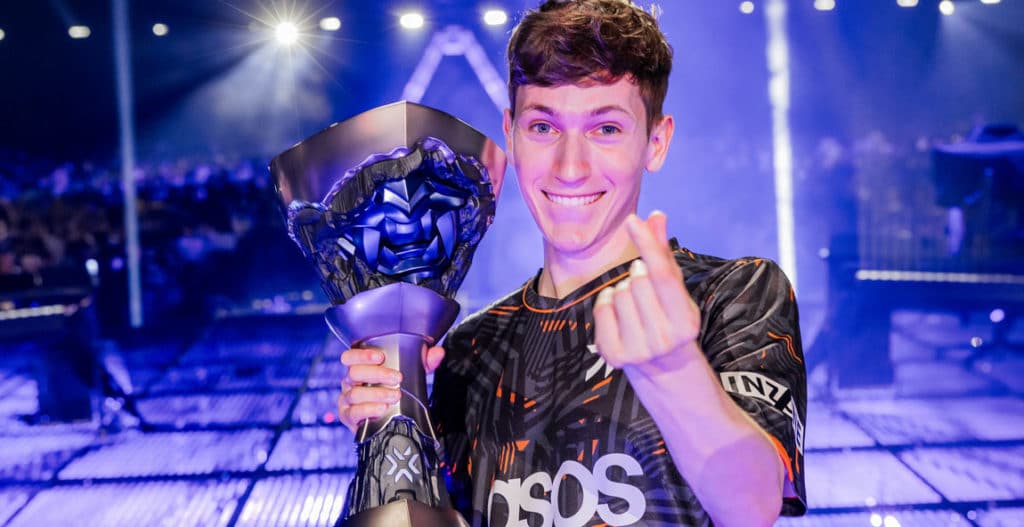In this special series of in-depth articles, Esports News UK, in collaboration with the betting partner GGBET UK, delves into the stories, moments, and personalities that have left a lasting impression on the past, present, and future of the UK esports scene.
In this article, Kim ‘vserov’ Panagos provides insight into the history of UK Valorant esports as the game celebrates its fourth birthday (it first launched on June 2nd 2020). While Valorant hasn’t been around as long as well-established esports like League of Legends and CS, it’s made a big impact in the in the UK. Here’s how.
2020-2021: First-mover advantage
Do you remember where you were on April 7th 2020, when Riot Games’ heavily anticipated Project A entered closed beta as Valorant?
Let’s be real, you were probably in lockdown like the rest of us. Thanks for that, Covid. But at least we had an exciting new tac-FPS to play. And for many veteran UK esports grinders, Valorant’s release could not have been better timed.
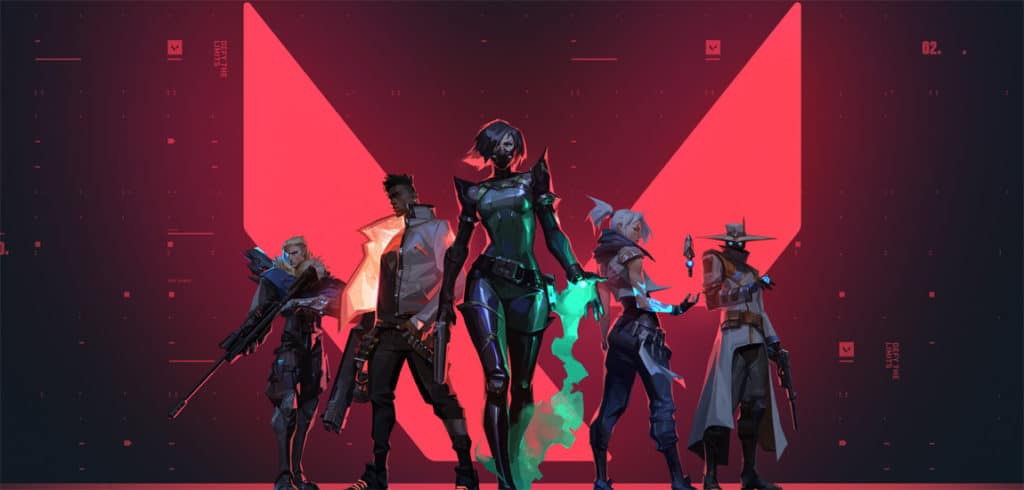
For context, cast your eye over Reece Barrett’s monumental history of UK Counter-Strike. Of course, UK CS has had a few flashes of promise, but for the most part Reece’s article is an anguished lament; a paean to the scene’s frustrations, lost talent, near-misses, and what-could-have-beens.
Now, spare a thought for the UK CS:GO players who the guys you’ve actually heard of in Reece’s article were beating on the regular at I-Series LANs and in ESEA circuits. The guys who stars like Smooya and Mezzi would ditch when the big name EU orgs came calling. Guys like Ec1s, Kray, Kryptix, L1NK, soulcas, Br0die, Stan1ey and Boaster. You might recognise some of those names now, but unless you were deep into T2 and T3 UK CS back in 2020, you probably wouldn’t have had a clue who they were.
But for those guys, Valorant offered a shot at redemption. A fresh start where they could exorcise the memories of savage beatings at the hands of more talented and better drilled European sides. A game where, provided players worked hard enough and smart enough, it might just be possible for UK esports to reach the promised land.
Few British grinders were more aware of this than Connor ‘Sliggy’ Blomfield, a UK former CS observer, player, and coach who was quick to recognise the golden opportunity that Valorant represented. Though he hadn’t found much success during his playing days in CS, Sliggy had gone on to have a major role in revolutionising the art of in-game observing. And with multiple CS:GO majors under his belt on the broadcast side, he had genuinely reached the top of his field, making him something of a rarity in the UK CS scene. He was also a student of esports history, and knew that if the UK was to find any success, it would have to embrace Riot’s new shooter as quickly and with as much commitment as possible.
“As a collective in the UK, all the players and teams had been beaten down. We had nothing good to say about our region for the past five plus years. But at the same time there were a couple of us that were learning from the mistakes. So when [Valorant] came out, it was easy to persuade a good amount of us to commit to it full-time.”
Sliggy
Sliggy’s first recruits, banded together as a mix under the FISH123 moniker, were UK-based players Adam ‘ec1s’ Eccles, Dom ‘soulcas’ Sulcas, James ‘Kryptix’ Affleck and Travis ‘L1NK’ Mendoza, plus Latvian player Ardiis ‘Ardiis’ Svarenieks.
With these five, Sliggy had a clear vision: “With FISH123 I basically got all the tier two players that I knew were good that wanted to play. Literally within the first two days of the Beta being out, I just said: ‘Let’s commit, I’ll commit full-time if everyone else commits full-time.’
“I referred to when NiP started out in CS:GO and just dominated, and said: ‘This can be us. I don’t think we’ll necessarily all be around in two years’ time, but I think we can dominate at the beginning and basically do everything different from what we did in CS:GO.'”
In the early days of CS:GO, NiP were unstoppable. Their roster, spearheaded by Swedish greats GeT_RiGhT and f0rest, put together a scarcely believable 87-0 map win record immediately following the game’s release, and etched themselves into legend. It seemed inconceivable that FISH123 could come anywhere close to such heights. And yet, they were able to live up to Sliggy’s comparison. During Valorant’s Closed Beta (April 7th to June 2nd, 2020), FISH123 won more events (six), and stacked up more earnings ($20,446) than any other team in the world. They won 35/35 best-of-three series, and were widely regarded as the top team in Europe.
When asked to explain how they found so much success early on, Sliggy was quick to point out how the bitter lessons of CS prompted a change in attitude in the UK scene.
Where in the past a lack of seriousness or commitment had led to UK sides being outworked by their EU rivals, this time around it was the British players who put the hard yards in first.
“I think all of the players [on FISH123] had chances on T2 teams and they didn’t go great,” Sliggy said. “So this was a fresh slate for everyone to start anew and fully commit… As a coach I wanted to guide them. In the UK it wasn’t cool to try hard or commit to things, especially games. So I wanted to get that out of their system and just be like ‘this is what we’re doing.’ And everyone committed.
“I think all the beatdowns that the players took in T2 and T3 really helped them have the hunger for it… The thing that I learned the most, especially from CS, was the fact that there were broken guns in CS:GO and people discovered five years down the line that they were busted guns that needed nerfing like the Krieg and the Bulldog.
“I took all of those lessons and thought: ‘This game is going to be broken because it’s impossible to balance a game like this so early on with so many agents.’
“So we just tried to find whatever guns and agents were super overpowered and used them to the best of our abilities… We just no-lifed the game before everyone else, basically.”
Armed with the ‘noob’ guns like the Judge and the Frenzy, Team Liquid had a headstart on the meta. Still, it took the rest of the region a little while to fully recognise their talents, with the team going unsigned throughout the early months of 2020. Then, with the closed beta coming to an end, FISH123’s star player, Ardiis, left the UK squad for G2 on June 7th 2020.
This departure came as a further blow, but fortunately Sliggy’s team had won so much by that point that orgs simply couldn’t ignore them any longer. And so, on August 7th, Fish123 joined Team Liquid, with French CS:GO legend and well-known ‘eadshot machine, Adil ‘ScreaM’ Benrlitom confirmed as Ardiis’ replacement.
At the time, ScreaM’s signing was viewed as a massive coup, underscoring the level of respect and legitimacy that Sliggy’s squad, and the UK scene more broadly, had attained in early European Valorant.
Sliggy’s Team Liquid would go on to compete at the top of the EU scene for the rest of his tenure with the side until his resignation in August 2022. They never quite managed to recapture that early level of dominance, but even within the first few months of Valorant’s release their impact on the UK esports scene was already immense.
There was one man in particular who was paying close attention to FISH123’s early successes. Jake ‘Boaster Howlett, another veteran of the UK’s CS:GO scene, had been following Sliggy’s project with interest. After retiring from CS:GO in 2019, Boaster had been working as a vlogger charged with documenting Excel Esports’ League of Legends team.
“I was behind them when they got on stage and when they were in the practice room. I was just the vlogger. The cameraman. And I was jealous. I really really wanted to go pro,” Boaster said in this video by Upcomer.
At first, Boaster tried directing his efforts towards learning League of Legends. He was a quick study, so much so that Excel even gave him a spot as the official sub for their LoL roster. However, before long, another opportunity would lead to a major re-evaluation of his plans.
As Boaster explained:
“I heard rumours of a new FPS game that Riot were making called Valorant. And I was like, ‘OK, this could be it!’ It combines a bit of League of Legends and Counter-Strike… and it’s new, so whoever works the hardest at the start will reap the rewards and stay at the top for as long as they’re gonna be working hard. So I was thinking: ‘I need to make a plan…'”
Boaster
The plan was simple. Quit his vlogging gig, live off his savings, and grind Valorant full-time until he got signed as a pro. But with Sliggy snapping up much of the more established CS:GO talent, and no org support for his ambitions, Boaster was forced to start from the bottom, and build up with his own team.
With his friend Jacob ‘Mini’ Harris signing on as coach, Boaster identified a pair of talented young British Battle Royale players who had started to make names for themselves on the Faceit hubs that EU Valorant players frequented during the early months of the Beta. Their names were Muhammad ‘Moe40’ Hariff and James ‘Mistic’ Orfila.
As Mistic recounts: “I went into the unknown because I didn’t have many connections with the UK CS scene. The UK CS scene came into Valorant because they weren’t thriving in CS and saw Valorant as an opportunity to move over.
“I knew Moe40 from H1Z1. We kind of just played whatever games we enjoyed. At one moment I was playing PUBG and competed in super early tournaments and then found out I wasn’t allowed to compete because I was too young. Then I played H1Z1, and then Fortnite for a little too… since I didn’t know many other people from the UK scene, I just played in the Valorant Faceit hubs… I just wanted to play something other than the traditional ranked experience.
“Super early on I was playing in lobbies against people like ANGE1, SHAO and other big names. Boaster specifically is the one person that I met that escalated things and changed my life. [We met] through a Valorant hub called VPD. I remember seeing Boaster in games and he impressed me. I thought he was super smart… So I sent him a little message on Twitter saying: ‘If you ever make a team or [need] a player, hit me up.’”
After Boaster’s early teams didn’t really go anywhere, he ended up reaching out to both Mistic and Moe40 to ask if they wanted to trial for his new five. A talented young Croatian player, Domagoj ‘Doma’ Fancev and the Greek Kostas ‘tsack’ Theodoropoulos rounded out the squad.
In typically British fashion, they jokingly called themselves, SUMN FC, short for “Sage Ult My Nan”. After a promising string of results, including victory in the online Epic.WAN 31, SUMN FC were able to qualify for First Strike Europe, the first official European Riot event.
SUMN made a brilliant run, making it all the way to the final before losing 3-1 to an international Team Heretics side coached by Tanishq ‘Tanizhq’ Sabharwal, a veteran of the UK’s Overwatch scene.
In the wake of their run at First Strike, SUMN FC received offers from a number of different orgs, but Boaster turned them all down. He had his sights set on one org in particular, and even with his savings running out, he held the line. He was waiting for Fnatic.
And come February 2021, Fnatic did indeed come calling, entering Valorant and signing SUMN FC.
In a huge moment for the scene, the UK’s biggest org was signing a majority UK roster. After some initial struggles, the team ended up making changes, with tsack and Moe40 being cut to make way for the Czech sentinel, Martin ‘MAGNUM’ Peňkov, and Finnish duelist, Nikita ‘Derke’ Sirmitev.
Derke swiftly established himself as the most formidable duelist in Europe, and bolstered by his and MAGNUM’s firepower, the team sailed through Stage 2 Challengers to qualify for the first international Valorant event, Masters Reykjavik.
It’s hard to stress how much of an accomplishment this was. There were only two EU spots at Reykjavik, and with Team Liquid also qualifying after defeating Boaster and co. in the Stage 2 Challengers Grand Final, the UK had essentially secured both of them! As a result, five of the ten players who would be the first to represent Europe internationally in Valorant would be British.
But the tournament itself would not go quite so smoothly. With both teams being sent to the lower bracket following defeats at the hands of Sentinels and Version1, Fnatic and Liquid would face each other in an elimination game in the lower semi-finals. This time, it was Fnatic who would prevail.
After besting TL, Fnatic completed their lower bracket run with a close 2-1 victory over the Korean side, NUTURN. Against all the odds, they had made it to Valorant’s first ever international Grand Final, setting up a rematch against the star-studded NA team, Sentinels; the very same squad who had sent Fnatic to the lowers earlier in the tournament.
In an incredibly hard fought final, the first two maps went to overtime, but in each instance, Sentinels came out on top.
The last map, Haven, ended in heartbreak, with Mistic team flashing Doma to gift Sentinels an easy retake to help them secure the map 13-11, and close out the series.
Although Fnatic didn’t manage to come away with the title, the orange and black made an indelible impression on the Valorant fanbase. After each of their wins, the team performed a short skit to celebrate their win in style.
By the end of the event, Boaster and his teammates had gone from relative unknowns to international esports superstars. And they were just getting started.
So was the rest of the UK scene. A one-off UK & Ireland Valorant tournament was announced in 2021, which operated under the ESL Premiership banner: The Valorant UK&I Skirmish – Powered by Intel.
By mid 2021, a number of UK orgs had followed in Fnatic’s footsteps and signed teams. Rix.gg and Guild (albeit with an all-Swedish Valorant roster) had already entered the scene in 2020, with the latter in particular rounding into promising form during regional competition as 2021 progressed.
Not to be outdone, Excel also joined the fray in March, and were soon followed by Tenstar, who signed a predominantly British mix. Competition was clearly heating up, and not just in the UK. The rest of EMEA was improving rapidly, and as a result of the increased competition, both Fnatic and TL missed out on qualification for Masters Berlin.
Fortunately for Fnatic, Gambit managed to bring home EMEA’s first global trophy, and in doing so secured Fnatic qualification to the first Valorant Champions event, which would again take place in Berlin. Team Liquid took down Guild in the Grand Final of the EMEA Last Chance Qualifier to join Fnatic in booking their flights to Germany.
Both teams had exciting runs at Champions 2021, with Fnatic escaping a group of death with impressive wins over Vision Strikers and Cloud9, while TL looked like genuine title contenders after besting Sentinels and KRÜ in another difficult group. Alas, both teams faltered in the playoffs, with Fnatic being upset following an exhilarating performance from KRÜ, and TL falling to fellow EMEA rivals, and eventual champions, Acend.
A talented start: UK and Ireland broadcast talent in Valorant
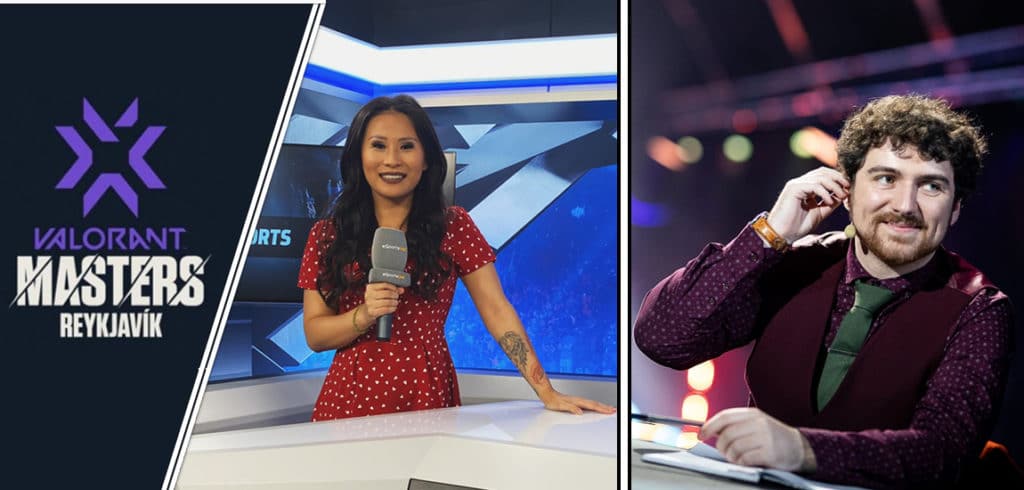
Players weren’t the only UK esports mainstays who took advantage of first-mover advantage to find their niche in Valorant. If you’ve watched any amount of the broadcast for VCT EMEA, your experience is likely to have been heavily shaped by British on-screen talent.
From the outset at First Strike Europe, Yinsu Collins, a journalist who cut her teeth at Sky Sports UK, and who also doubled as SUMN FC’s manager during the game’s early days, has been the go-to host for Valorant broadcasts, both in EMEA, and at global events.
A talented broadcaster with a producer’s mindset and an endless almanack of Valorant history and lore, Yinsu has firmly established herself as the face of our wonderful game.
On the commentary front, the British duo of Lauren ‘Pansy’ Scott and Michael ‘Hypoc’ Robbins, or, as they are affectionately known, ‘Panpoc’, are at this point practically synonymous as the voices of Valorant.
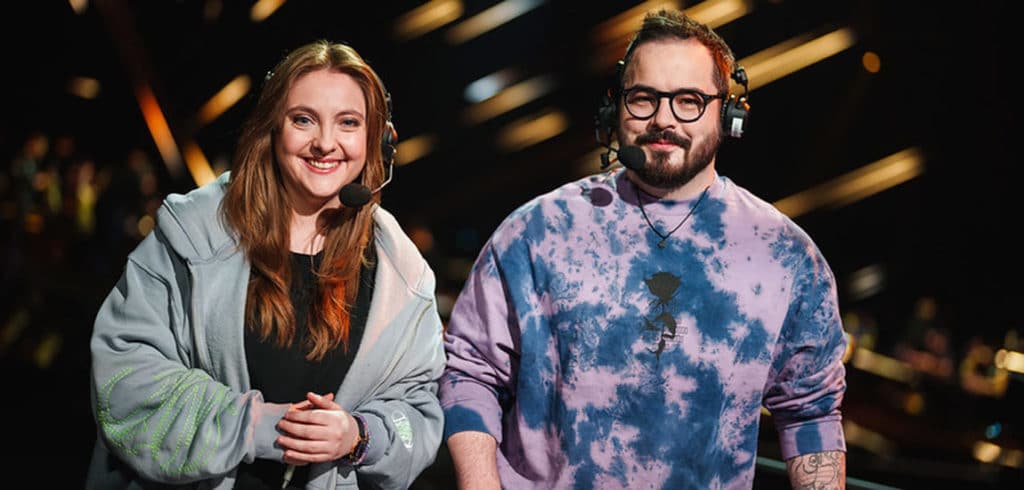
Pansy is yet another esports lifer, who started out grinding Wolfenstein: Enemy Territory competitively before getting hooked on Call of Duty 4: ProMod. A regular at early I-Series events, Pansy eventually switched over to casting COD4, often in tandem with Alex ‘Machine’ Richardson, before being picked up by ESL.
With ESL, she became a fixture on CS:GO broadcasts throughout the 2010s, but after her career plateaued she gradually began switching over to PUBG. Hypoc had also been a PUBG caster, but aside from a brief encounter at IEM Katowice in 2018, he and Pansy had never actually worked an event together.
However, by 2020, the two casters shared an agency, and as a result ended up being paired to work a Valorant Ignition Series event, where they immediately clicked, developing a chatty, conversational style that was quick to resonate with Valorant’s zoomer fanbase.
The occasional tech pause aside, they’ve been unstoppable ever since, with multiple Valorant Masters and Champions Finals under their belts.
Alongside Panpoc, we’ve seen further representation on the talent front from Tom “Tombizz” Bissmire and his Irish duo, Mitch ‘Mitchman’ McBride. Both casters previously had extensive careers in CS:GO without ever quite breaking through, but much like Boaster, they recognised the opportunity that Valorant posed, and jumped head first into the scene, with Mitchman even spending time coaching a talented Alliance roster in 2021.
Their palpable chemistry and passion for the game has made them beloved fixtures of the VCT EMEA broadcast, as well as regulars at global events too. Meanwhile, in Polaris, the hard working duo of Harry “Hazza” Chapman and Kieran “Kairo” Tulloch have been making waves thanks to their in-depth knowledge of the UK scene and penchant for the occasional football chant.
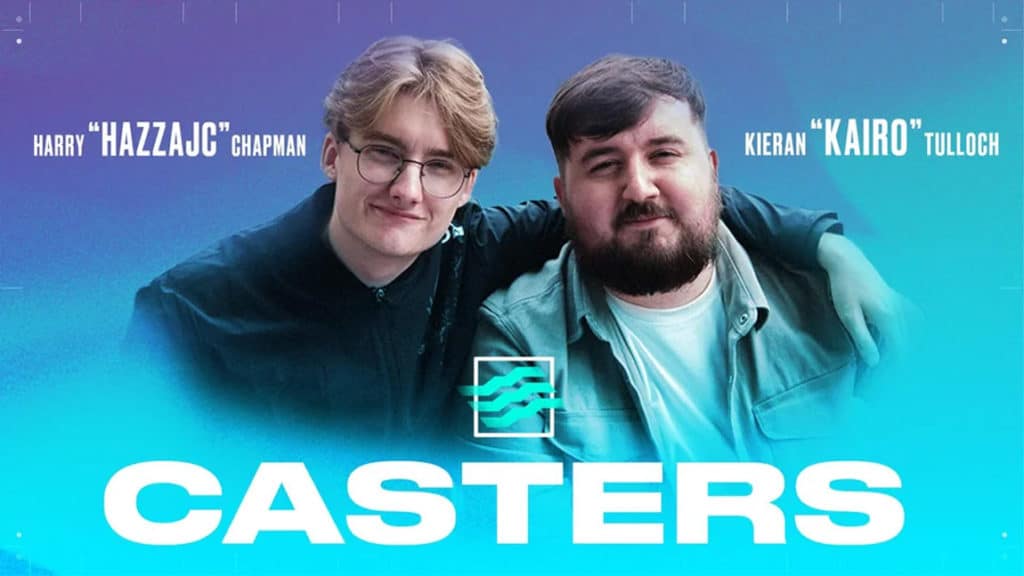
Content creator and analyst Ryan ‘RyanCentral’ Horton has also been a mainstay on many Valorant broadcasts, including appearances at Masters and Champions events. He’s also found success on the team side, after making a promising run in EMEA Game Changers with Odd 1 Out in 2023.
Finally, if you’ve watched any Valorant in EMEA, you likely did it through the eyes of British POV observer Luke ‘xilv’ Davis, who has been ever present on EMEA broadcasts since 2020. In 2024, xilv has been working out of Project Stryker, the cutting-edge Remote Broadcast Centre (RBC) that Riot Games opened in Dublin in 2022 to provide technical support for its esports events.
Stryker is staffed by an extensive crew of unheralded operators and technical experts who play a substantial role in elevating Valorant broadcasts. Observers, replay operators, graphics operators, and technical directors; there are too many talented British and Irish folks to name working at Stryker, but their contributions to shaping our experiences of Valorant esports cannot be understated.
Changing the game: Valorant tournaments for women
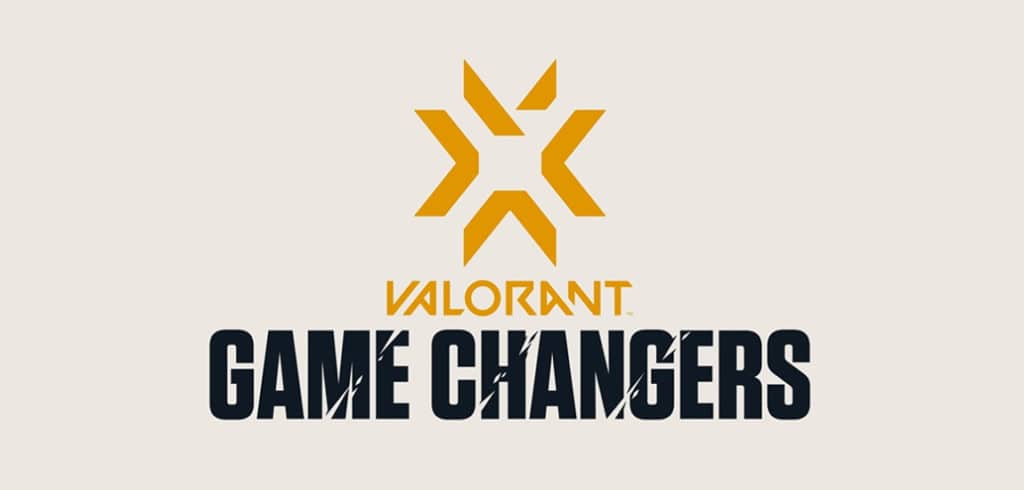
2021 also saw the launch of Valorant’s Game Changers initiative. In EMEA, Riot created the GC circuit for women to gain experience and compete against each other, while also providing a pathway for top prospects to eventually integrate into the open VCT circuit.
From the start, British players and orgs have played a major role in EMEA game changers, with Rix.GG emerging as a force in the first year of competition, making the final of GC Series I against Tenstar Nova’s all-French roster. One of Rix’s key players during that run was the British duelist, Paige ‘Padge’ Thomas.
Other notable British GC competitors include Jade ‘Jademwah’ Duffy, who has consistently battled at the top of the scene for a number of strong sides, including Alliance, Acend, and Rebels Velvet; and Sarah ‘Sarah’ Ahmed, who emerged seemingly out of nowhere to sign with the legendary G2 Gozen squad that represented EMEA in the Game Changers Championship in 2023.
By 2024, the UK’s women’s scene has grown immensely, with players competing in Riot’s main circuit, as well as various smaller events, including a £10,000 women’s I-Series cup, and even the occasional bigger event, such as Red Bull Instalock, which was held in London in 2024. UK orgs have also occasionally found success, with the aforementioned Rix.GG being an early force in the scene, and Guild X also making waves internationally with an appearance at the Game Changers Championship in Berlin in 2022.
You can also see winners from the Valorant women’s cup at i71 and i72 here. There have been other women’s tournaments like Birds of Prey from UK TO/community collective The Goose House, as well as the Athena Series, Freydis Games and more.
Various student tournaments, like the NSE, NUEL/University Esports and British Esports Student Champs have also had their own women and non-binary offerings, providing a safe space for these players to compete. And we’ve seen UK broadcast talent like Scotland’s Billie ‘billieidk’ Purdie emerge, who also helps to run British Esports’ Women in Esports initiative.
2022: The rollercoaster
2022 was a rollercoaster year for the UK Valorant scene. Things began promisingly, with Riot continuing to expand the Valorant ecosystem in EMEA by introducing Valorant Regional Leagues (VRLs), with the UK placed in Northern Europe, or “Polaris,” and operated by Promod Esports.
The Regional Leagues would function as a tier two that would filter out the best European up-and-comers, who could then fight their way up into the main Challengers circuit where big guns like Fnatic, TL, and Guild would battle it out for spots in Masters and Champions events.
Then, beneath the Regional Leagues, a third tier of competition was introduced: Valorant Regional Circuits (VRCs). In Beacon, the Northern European circuit, tier three sides (including those from the UK) would have a pathway up the ladder by competing in a number of smaller events, both on and offline, including Epic.LAN, which Rix.GG Static won in 2022.
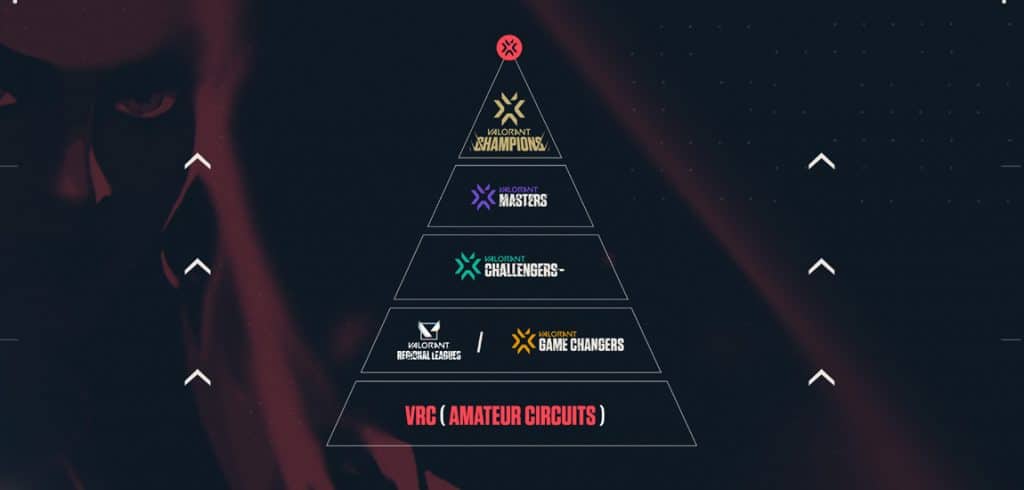
Polaris itself was dominated by an Excel side featuring two British players, Moe40 and Tyler ‘Foxie’ Lowton. But despite winning both of their VRL Splits in 2022, Excel couldn’t make it into Challengers after losing to Surreal Esports during their promotion qualifier.
Meanwhile, in tier one, Fnatic and TL continued to have uneven seasons. 2022 began promisingly enough for Fnatic, who secured their place at Masters Reykjavik after clutching out a nail biting 44-round overtime epic against M3C (ex-Gambit).
The main event was a disaster though, with Derke stuck in his hotel with Covid, and new signing Andrew ‘BraveAF’ Gorchakov suspended by the team. The Orange and Black fielded two substitutes, and promptly bombed out during the group stage after falling to Zeta Division and NiP.
Fnatic bounced back strongly during the next Challengers series, where they sailed through EMEA undefeated. Things were less rosy for Sliggy’s Liquid who, having already missed out on Iceland, lost in dispiriting fashion to M3C early in Challengers playoffs, a result which meant they would miss two international events in a row for the first time.
All was not lost for the UK though, as Fnatic would be joined in Copenhagen by Guild, who by this point had pivoted to a more international roster, including a UK player, former Tenstar and Tarren Mill stalwart, Russel ‘Russ’ Mendes. After so many near misses, Guild finally looked to have turned the corner, and along with a veteran FPX side, would round out the trio of EMEA representatives in Denmark.
Unfortunately, neither UK org was able to carry over their regional form against the more diverse and threatening international competition in Copenhagen. Guild did well to escape their group, including a memorable win over pre-tournament favourites Optic, but both they and Fnatic would eventually succumb to regional rivals FPX, who made a miracle run through the lower bracket to bring yet another trophy back home to EMEA.
Things didn’t go much better for the UK sides at Champions 2022 in Istanbul. Team Liquid had at least repeated their 2021 feat of winning the Last Chance Qualifier, but once again the main event would prove too much for them. Both they and Fnatic lost to NA sides during the first round of the playoffs, and were promptly drawn against each other. As has so often been the case, these two EMEA titans seem to ride or die together.
Once again, Fnatic came out on top, but promptly fell to DRX in the very next round. By this point, Sliggy and L1NK had already stepped down from the TL, leaving soulcas and analyst Jake ‘Bacon9’ Lloyd as the UK’s sole representatives on the squad.
Fnatic also sought to make changes during the offseason. They would eventually go on to build an all-star roster heading into 2023 by picking up Guild’s star player, Leo ‘Leo’ Jannesson, and ex-M3C superstar Timofey ‘Chronicle’ Khromov. But to accommodate all this new firepower, Mistic would have to make way, leaving Boaster and Mini as Fnatic’s last Brits standing.
2023: The franchise era
2023 prompted the biggest changes in the Valorant ecosystem since the game’s launch. Riot introduced a much anticipated franchise system, where partnered leagues were established in each of the game’s core regions: Americas, EMEA, APAC, with a fourth to follow in China.
Partnered teams would receive substantial support and funding from Riot, so for many orgs this would prove to be a watershed moment. With only Fnatic ending up making the cut for the Valorant International Leagues from the UK, the likes of Guild, Excel, Tenstar and Rix.GG all pulled out of Valorant, severing ties with their players, and leaving an immense vacuum of support between grassroots and the top level of pro play.
VRLs would be rebranded as Valorant Challengers Leagues (VCLs), with the top performing teams in each region competing in a one-off event called Ascension, with the winner securing a two-year invite to participate in their respective franchise league.
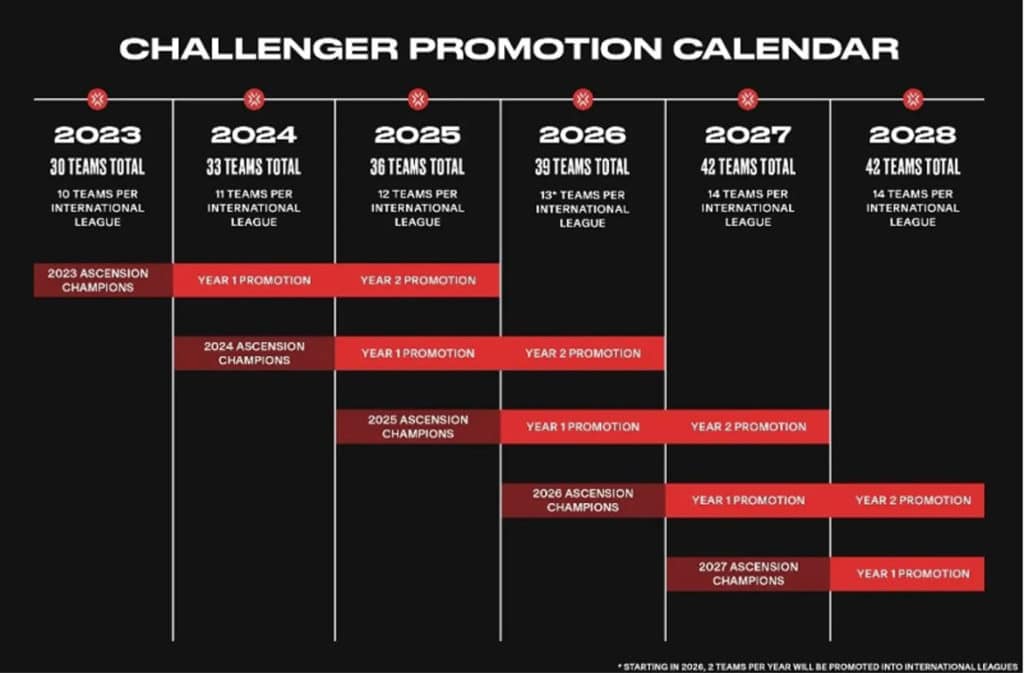
The franchise system promised a great deal of stability for the top orgs in Valorant esports, but led to a massive collapse in support for mid-tier aspirants. The plight of Les Petits Bouffons, an unsigned team formed by a number of former T1 and T2 UK Valorant pros, was a case in point.
After stepping down from Liquid midway through 2022, L1NK put the squad together to compete in the Beacon circuit. They were very clearly a cut above the rest of the competition, and promptly racked up wins in multiple Beacon events, including at Epic.LAN 37.
LPB kicked off 2023 by making it to the Grand Final of the Beacon Open Split 2 Finals, securing a spot in VCL Polaris Stage 1. In previous years, they’d have been a no-brainer pickup for a mid-tier org like Tenstar, Rix.GG, or Excel.
But in 2023, Polaris was a wasteland, a frigid plain stalked by two fearsome predators: Apeks and Fokus. Both teams were stacked with former T1 talent, with Apeks in particular looking formidable, with rising UK duelist Georgio ‘Keiko’ Sanassy supported by three former Fnatic players: MAGNUM, Mistic, and the French IGL, Enzo ‘Enzo’ Mestari.
Despite the absence of any org support, LPB put up a solid fight, finishing in first during the regular season in Split 1, but in the end, the two titans simply could not be overcome, with Apeks besting Fokus in the finals of both splits to secure their place in Ascension (more on this later).
Pressure had never been higher on UK pros. If you weren’t at the franchise table, you were on the outside looking in. One has to imagine that these sorts of thoughts were swirling around in Boaster’s head after his team’s struggles in 2022. But with Fnatic’s new roster bringing in vast amounts of firepower and experience, the team’s prospects had never been better. And so it would prove.
Riot began 2023 with its biggest Valorant event ever. All 30 franchise teams were invited to São Paulo for Lock/In, where they would compete for a $500,000 prize pool. After so many years of struggle and heartbreak, Boaster and his boys simply would not be denied. They sailed through the bracket stage with three consecutive 2-0 wins, and then exacted revenge on Navi (ex-FPX) for defeating them at Masters Copenhagen, with a resounding 3-0 victory.
Now only the hometown heroes, Loud, stood in their way. At first, it looked like Fnatic would sweep them aside as easily as everyone else, going up 2-0 in the best-of-five grand final. But Loud fought back, taking Split and Lotus, and forcing Fnatic onto their historic stronghold, Icebox.
Worse still, Loud took a massive lead during the first half on Icebox, going up 9-3, and looked almost guaranteed to take home the first VCT trophy of 2023. But Fnatic were not going down quietly.
With the first half over, Mini gave his players a now legendary speech: “Boys, this is it. I just wanna hear some comms, ok? I feel like our comms have disappeared, ok? If we just play like it’s pracc, just communicate like it’s pracc, I feel like we’ve got a shot at this still ok? It’s a difficult situation, it’s stressful, take some breaths as you need it. But I’m telling you, the comms have dropped to a point where we can’t win with [them].
“If we comm up better we can win this, ok? I wanna hear, If someone is doing a cascade on you I want to hear it. Start of the round, if someone has an ult, I want to hear it. If they’re doing this, this, this, this, I want to hear what they’re doing. Dead people, again, dead people, you need to be telling what’s going on. They’re lurking across the map on that attack side, we just need to know what’s going on. So this attack side… Focus for this half of the scrim is communication, ok?”
Despite losing their attack side pistol, and falling to 3-11, Fnatic started grinding out rounds. After winning a second consecutive force buy, Fnatic made it 4-11. In the next round, Derke found himself in a tight 1v1 clutch with Loud’s star duelist, Erick ‘aspas’ Santos,which he secured with a clinical play around his Jett smokes.
Fnatic were starting to snowball. Their comms were back, Boaster’s midrounding was spectacular, and Derke and Chronicle kept the team focused.
After bringing the scoreline back to 11-11, Fnatic’s prodigal Turkish sentinel, Emir ‘Alfajer’ Beder found himself in a 1v2 clutch from behind the yellow container on the B site. Dancing around yellow, he managed to perfectly time a swing, lining up both Loud retakers for a legendary 2k.
Alfajer’s 1v2 clutch vs Loud on Icebox in the grand final of Lock/In São Paulo 2023.
With Fnatic ahead 12 – 11, and having finally relinquished their lead, Loud were not ready to go away just yet, and managed to push the match into overtime. But after a beautifully choreographed execute onto the B site, Fnatic secured a flawless round to complete the most memorable comeback in Valorant esports history.
After all those long years spent grinding, and losing in CS:GO, and then coming so close in 2021 against Sentinels, Boaster had finally done it, bringing home a trophy for his beloved Fnatic at Lock/In. It was a fairytale moment, one of those matches that is indelibly seared in the memory of everyone who was watching.
After winning in such epic fashion, many teams might have rested on their laurels after Lock/In, but not Fnatic. They returned to dominate the inaugural season of VCT EMEA, sweeping everyone aside during a flawless round robin stage. The grand final, against a resurgent Team Liquid, seemed like a foregone conclusion. But soulcas and company managed to best them, handing Fnatic their first defeat in 16 officials in the VCT EMEA 2023 grand final.
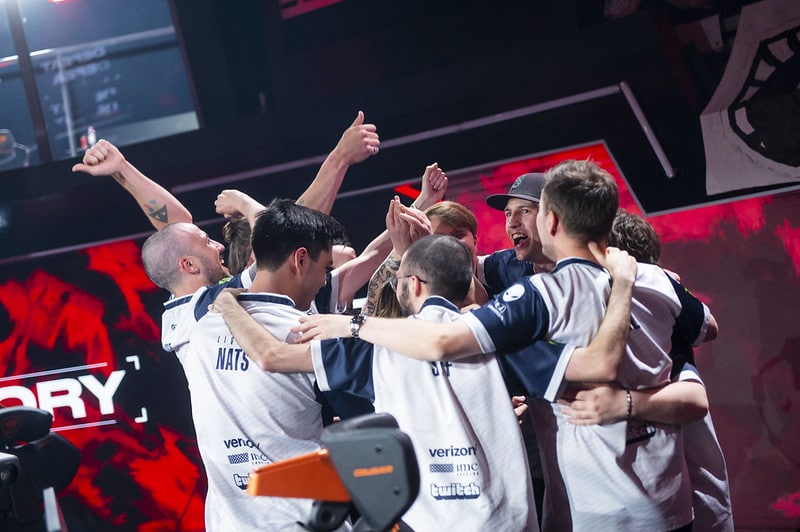
Undaunted, Fnatic bounced straight back at Masters Tokyo, sailing through the competition in an even more confident display than at Lock/In, and culminating in an emphatic 3-0 grand final victory over Evil Geniuses to become Valorant’s first (and at the time of writing, only) back-to-back international winners.
In such a volatile and globally competitive game, it’s hard to underscore how impressive an achievement this is. No team in the history of Valorant has ever looked as dominant as Fnatic did in the first half of 2023.
And though Fnatic may have faltered against old rivals Loud at Champions Los Angeles at the end of the year, they will undoubtedly go down as the game’s first true titans.
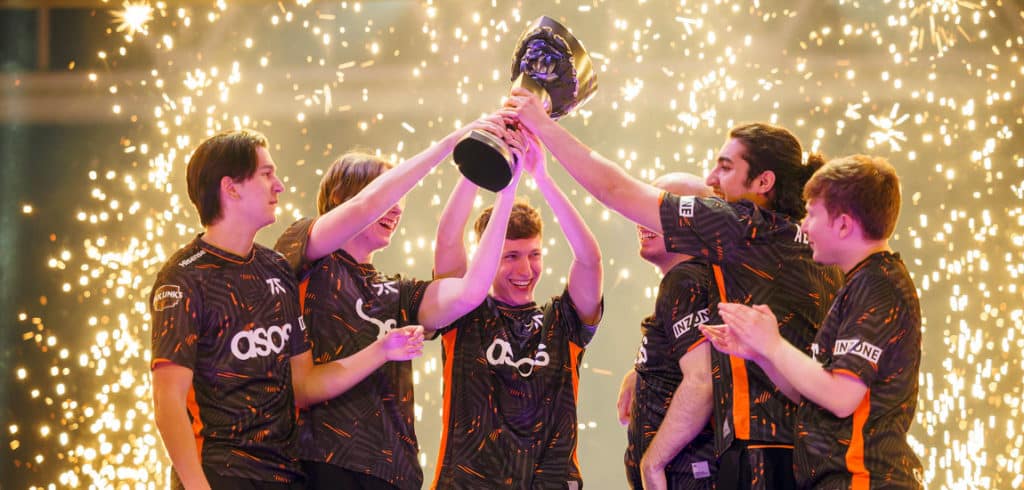
Just as Fnatic had dominated the VCT circuit in 2023, so too did Apeks appear primed for a comfortable victory during the first EMEA Ascension event. Like Fnatic, they seemed indomitable, dropping only two maps on their way to the Grand Finals. One win away from a spot in VCT EMEA 2024, Apeks victory had virtually attained the status of manifest destiny. Or so we thought.
In perhaps the most astonishing upset in the history of EMEA, French upstarts Gentle Mates dismantled Apeks 3-0 in the grand finals. It was an astonishing series to watch.
Even though most pundits believed that Apeks possessed an overwhelming firepower advantage, M8’s unorthodox playstyle and meticulous anti-stratting, courtesy of legendary coach Kevin “Ex6TenZ” Droolans, would prove to be their undoing.
Thankfully, there was one silver lining for UK Valorant fans, as Mistic and Keiko would promptly get picked up by Team Liquid during the 2023-2024 offseason.
2024: Present and Future
2023 had been a banner year for UK Valorant. With Fnatic failing to qualify for Masters Madrid in 2024, and then being eliminated early at Masters Shanghai, it seems highly unlikely that UK players will secure two international VCT events in one year any time soon.
Nonetheless, there are a number of promising signs for the future of the UK scene. In a development that was easy to overlook in 2023, the UK former Fortnite star Benjy “benjyfishy” Fish, signed to a struggling Team Heretics roster to compete in the Last Chance Qualifier.
TH had been a laughing stock all season, with their roster of well known but underwhelming veterans continually disappointing. TH bombed out of the LCQ after one match.
But in 2024, TH’s British coaching duo of Neil ‘neilzinho’ Finlay and Brandon ‘weber’ Weber, were able to refashion the org’s roster, surrounding Benjyfishy with a number of other talented young players plucked from across EMEA’s VCL circuits. The results were immediately impressive, as TH surprised everyone by making it to the Grand Finals of EMEA’s Kickoff event, and in doing so booked their tickets to the first Masters event of the year in Madrid.
Though their run in Madrid was short-lived, Heretics have continued to impress, with Benjyfishy looking like a star in the making. Cheerful, energetic, and charismatic, he has quickly garnered a reputation as a model teammate. And after securing VCT EMEA’s MVP award, and a spot at Masters Shanghai, it’s safe to say that his credentials inside the server are looking good too. At the time of writing, Heretics and Benjy have reached the lower bracket semi-final in Shanghai, where they will face 100 Thieves on June 7th 2024.
Elsewhere, Keiko has continued to shine brightly despite a difficult start to the season for Team Liquid. Similarly, Boaster has been having a challenging season with Fnatic in 2024, but a win at VCT EMEA 2024 (Stage 1) in spite of his team’s various health-related maladies, highlights how dangerous an opponent UK’s premier Valorant org continues to be.
Scotland had some great recognition in Valorant earlier this year, too. Sentinels assistant coach Drew ‘DrewSpark’ Spark-Whitworth won Valorant Masters Madrid with his team in March of this year, and, on the same day, Riot Games added a new Scottish agent to Valorant, known as Clove.
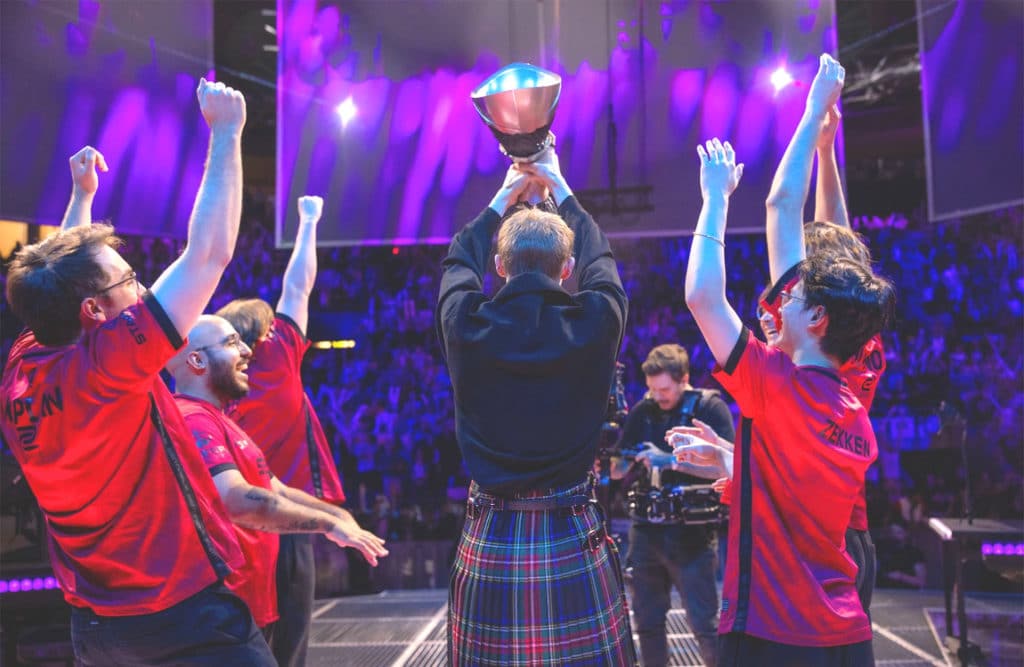
Dropping down one level, UK players have been continuing to flash promise in the VCLs. SweetnSour’s Theo ‘Ticey’ Cranshaw is looking like a breakout star in Polaris, while Ross ‘aNguiSt’ Pendleton has helped to headline a dominant CGN Esports’ run in the DACH Evolution VCL.
Valorant Challengers North Polaris was also recently rebranded.
But a closer look at the UK’s grassroots raises some signs for concern. The old Beacon Circuit has been dismantled. Where in 2022 and 2023 teams could compete in a succession of offline and LAN events, the new circuit—organised by GGTech in collaboration with NUEL – has been consolidated into a smaller event which, in combination with the top tier of Valorant’s new Premier system, will provide a new pathway into the Polaris VCL.
Esports News UK understands more news on Beacon will be coming later this year.
Quite what this means for the future of the grassroots scene remains to be seen, and the absence of mid-tier orgs is beginning to be felt.
As regular Polaris casters Hazza and Kairo explain: “Realistically when you look at Polaris you have sides like Apeks, Metizport, Formulation Gaming, and Nxt competing. But we don’t have any UK-based orgs in Polaris with the stature of Excel, or Guild or Rix… it has a knock-on effect.
“Formulation and Nxt don’t have the same draw from other games, so they have to create support through their own grassroots communities. Metizport tried to be competitive against Apeks in the first Polaris Split [of 2024] with the roster that they had. They dropped a lot of players that helped get them promoted to sign more established names, but even then it was not enough to compete with a big org that has been building its team for months, and who know they are going to run the gauntlet until the very last match.”
Perhaps even more worrying is the uncertain future of the Insomnia Gaming Festival, whose LANs have been an invaluable site for community building, networking, and for players to catch the attention of peers and industry bigwigs.
The UK’s LAN scene has historically been one of its greatest assets, but with the future of I-Series in doubt, it’s looking increasingly likely that one of the biggest offline gatherings for UK Valorant players is about to be lost for good.
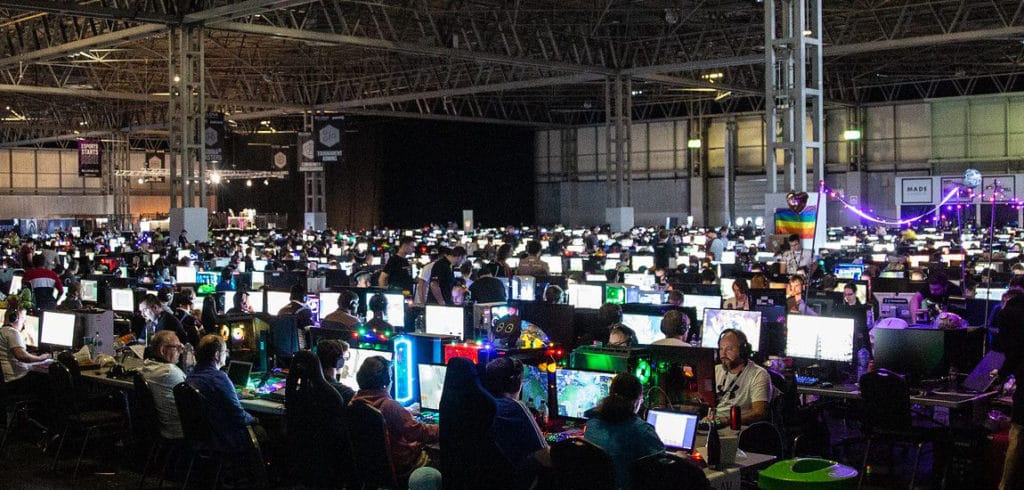
Quite what the consequences of the switch from the more open and diverse Beacon circuit to one centred around Premier also remain to be seen. When I interviewed Hazza and Kairo for their thoughts on the matter, they highlighted how opaque the Premier circuit is at present. These matches take place behind what are in effect closed doors, with no possibility for observers or a broadcast to help audiences follow the action. Under such circumstances it might be difficult to build the sort of community which gave the UK scene such an immense leg up on its European rivals in 2020 and 2021.
That said, the full Beacon system is still being rolled out, and Riot doubtless has plans to continue to improve Premier’s integration into the wider Valorant ecosystem. The quality of the Polaris product has also improved by leaps and bounds in 2024, with Mist Games taking over as organisers from Promod, and putting on a stellar production that merits a wider viewership.
Similarly, the NUEL/University Esports and NSE circuits have also quietly been whirring away, providing UK-based university students plenty of opportunities to experience the unique camaraderie that comes from competing together on the server.
There’s also the British Esports Student Champs, offering Valorant players at a collegiate level the chance to compete against one another.
Taking all this into account, it’s hard to be too pessimistic about the future, especially given that UK Valorant has already attained successes beyond the wildest imaginations of the jaded esports grinders who first set about establishing the scene in 2020.
From Fish123’s early dominance, to Boaster’s back-to-back titles, to Apeks’ heartbreaking Ascension run, to Benjyfishy’s MVP performances in VCT EMEA 2024, UK players and teams have already created so many magical memories. Let’s hope for a future with many more!
Postscript – from the author, Kim ‘vserov’ Panagos
I’d like to thank the many wonderful individuals who took time out of their busy schedules to speak with me in support of this piece. In particular, thanks to Sliggy, Hazza, Kairo, Mistic, Tombizz, and xilv.
I’d also like to thank Yinsu for recommending me to Esports News UK, you’re an absolute legend!
My sincerest apologies for missing any key figures, stories, or moments that I may have overlooked. Particular honourable mentions go to Dephh, Immi, and Tanizhq, all of whom are UK Valorant legends, and could easily have merited more attention.
It was impossible to cover everything, but I’ve done my best, and hope this has at least been an enjoyable read. Thanks!
Stay tuned for more articles powered by GGBET UK soon. See more UK esports history content here:
Explore Our Trusted Gaming Resources
Discover essential guides to UK casino sites, betting platforms, and crypto casinos — updated for this year.

